-
 Bitcoin
Bitcoin $112400
-1.07% -
 Ethereum
Ethereum $3409
-3.27% -
 XRP
XRP $2.784
-6.60% -
 Tether USDt
Tether USDt $0.9997
-0.03% -
 BNB
BNB $739.3
-2.09% -
 Solana
Solana $158.0
-2.90% -
 USDC
USDC $0.9998
-0.02% -
 TRON
TRON $0.3213
-0.94% -
 Dogecoin
Dogecoin $0.1929
-5.01% -
 Cardano
Cardano $0.6974
-2.82% -
 Hyperliquid
Hyperliquid $36.69
-2.31% -
 Sui
Sui $3.327
-4.80% -
 Stellar
Stellar $0.3672
-5.18% -
 Chainlink
Chainlink $15.65
-3.07% -
 Bitcoin Cash
Bitcoin Cash $525.0
-1.68% -
 Hedera
Hedera $0.2291
-6.00% -
 Avalanche
Avalanche $20.91
-2.96% -
 Ethena USDe
Ethena USDe $1.000
0.00% -
 Toncoin
Toncoin $3.520
-1.12% -
 UNUS SED LEO
UNUS SED LEO $8.968
0.14% -
 Litecoin
Litecoin $105.7
0.26% -
 Shiba Inu
Shiba Inu $0.00001181
-1.79% -
 Polkadot
Polkadot $3.492
-2.08% -
 Uniswap
Uniswap $8.800
-3.10% -
 Dai
Dai $0.9999
-0.01% -
 Monero
Monero $289.9
-3.17% -
 Bitget Token
Bitget Token $4.243
-1.27% -
 Pepe
Pepe $0.00001006
-3.67% -
 Cronos
Cronos $0.1248
-5.68% -
 Aave
Aave $249.7
-2.50%
How can blockchain games achieve sustainable development of the in-game economy?
Blockchain games use tokenomics and dynamic economic models to create sustainable in-game economies, balancing player incentives with stability and integrating real-world markets.
Apr 18, 2025 at 07:36 am
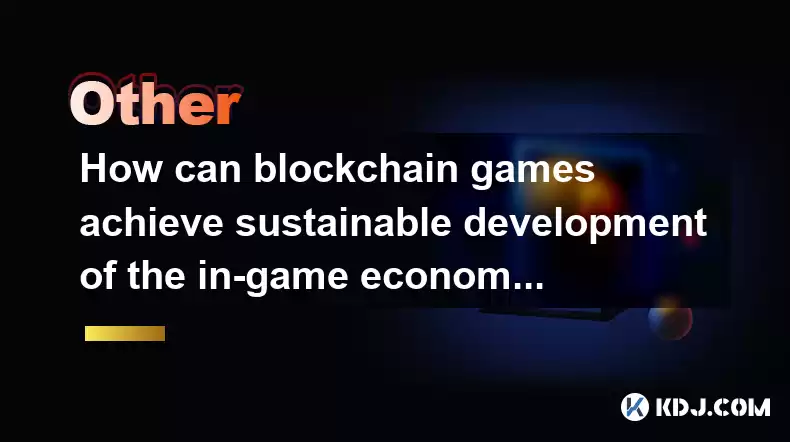
Introduction to Blockchain Games and In-Game Economies
Blockchain games represent a revolutionary approach to gaming, integrating decentralized technologies to create unique in-game economies. These economies are powered by cryptocurrencies and NFTs (Non-Fungible Tokens), enabling players to own, trade, and earn digital assets within the game environment. Achieving sustainable development of the in-game economy is crucial for the long-term success of blockchain games, ensuring that players remain engaged and the ecosystem remains balanced.
The Importance of Tokenomics in Blockchain Games
Tokenomics, or the economic model governing the use and distribution of tokens within a blockchain game, plays a pivotal role in the sustainability of the in-game economy. A well-designed tokenomic system can incentivize player participation, maintain economic stability, and prevent issues such as hyperinflation or deflation. Key components of tokenomics include token supply, distribution mechanisms, and utility within the game.
To design a sustainable tokenomic model, developers must consider the following aspects:
- Token Supply: Managing the total supply of tokens to prevent inflation or deflation. This can involve mechanisms such as token burning, where tokens are removed from circulation, or token minting, where new tokens are introduced.
- Distribution Mechanisms: Ensuring fair and equitable distribution of tokens to players. This can be achieved through initial token allocations, rewards for in-game activities, or participation in governance.
- Token Utility: Ensuring that tokens have meaningful uses within the game, such as purchasing in-game items, participating in governance decisions, or earning rewards.
Implementing Dynamic Economic Models
Dynamic economic models are essential for maintaining the balance and sustainability of in-game economies. These models adapt to player behavior and market conditions, ensuring that the economy remains responsive and resilient. Key strategies for implementing dynamic economic models include:
- Price Adjustments: Automatically adjusting the prices of in-game items based on supply and demand. This can help prevent price manipulation and ensure that the economy remains balanced.
- Incentive Structures: Designing incentive structures that encourage players to engage in activities that benefit the overall economy. For example, rewarding players for participating in in-game events or contributing to the development of the game.
- Economic Indicators: Monitoring key economic indicators, such as token velocity and liquidity, to identify potential issues and implement corrective measures. This can involve adjusting token supply or distribution mechanisms to maintain economic stability.
Balancing Player Incentives and Economic Stability
Balancing player incentives with economic stability is a critical challenge for blockchain game developers. Players must feel rewarded for their participation, but the economy must also remain stable to prevent issues such as hyperinflation or asset devaluation. Strategies for achieving this balance include:
- Reward Systems: Designing reward systems that provide players with meaningful incentives without flooding the market with tokens. This can involve tiered rewards based on player activity or achievements.
- Staking and Locking Mechanisms: Implementing staking or locking mechanisms that encourage players to hold onto their tokens, reducing the circulating supply and helping to maintain economic stability.
- Governance and Community Involvement: Involving the community in governance decisions related to the in-game economy. This can help ensure that economic policies are aligned with player interests and contribute to the long-term sustainability of the game.
Ensuring Fairness and Transparency
Fairness and transparency are essential for building trust and ensuring the sustainable development of in-game economies. Blockchain technology provides a transparent and immutable ledger of transactions, which can help prevent fraud and ensure that economic policies are enforced fairly. Strategies for ensuring fairness and transparency include:
- Smart Contracts: Utilizing smart contracts to automate economic transactions and enforce rules within the game. This can help prevent manipulation and ensure that rewards are distributed fairly.
- Audit Trails: Providing players with access to audit trails that detail economic transactions and policy decisions. This can help build trust and ensure that players understand how the economy operates.
- Community Governance: Implementing community governance mechanisms that allow players to vote on economic policies and changes to the game. This can help ensure that the economy remains aligned with player interests and contributes to the long-term sustainability of the game.
Integrating Real-World Economies
Integrating real-world economies with in-game economies can enhance the sustainability and appeal of blockchain games. This can involve allowing players to convert in-game assets into real-world currencies or integrating with external marketplaces where players can buy and sell digital assets. Strategies for integrating real-world economies include:
- Fiat On-Ramps: Providing players with the ability to purchase in-game tokens using fiat currencies. This can help attract new players and increase the liquidity of the in-game economy.
- Decentralized Exchanges: Integrating with decentralized exchanges where players can trade in-game tokens for other cryptocurrencies. This can help increase the liquidity and accessibility of the in-game economy.
- NFT Marketplaces: Partnering with NFT marketplaces where players can buy, sell, and trade in-game assets. This can help increase the value and utility of in-game assets and contribute to the overall sustainability of the economy.
Frequently Asked Questions
Q: How can blockchain games prevent token inflation?
A: Blockchain games can prevent token inflation by implementing token burning mechanisms, where tokens are removed from circulation, and by carefully managing the total supply of tokens. Additionally, dynamic economic models that adjust token supply based on market conditions can help maintain economic stability and prevent inflation.
Q: What role does community governance play in the sustainability of in-game economies?
A: Community governance plays a crucial role in the sustainability of in-game economies by ensuring that economic policies are aligned with player interests. By allowing players to vote on economic decisions and changes to the game, developers can build trust and ensure that the economy remains balanced and responsive to player needs.
Q: How can integrating real-world economies benefit blockchain games?
A: Integrating real-world economies can benefit blockchain games by increasing the liquidity and accessibility of in-game assets. By allowing players to convert in-game assets into real-world currencies and trade them on external marketplaces, developers can enhance the value and utility of in-game assets, attracting more players and contributing to the overall sustainability of the game.
Q: What are the risks associated with dynamic economic models in blockchain games?
A: The risks associated with dynamic economic models include the potential for unintended consequences, such as price volatility or economic instability. To mitigate these risks, developers must carefully monitor economic indicators and implement corrective measures as needed. Additionally, involving the community in governance decisions can help ensure that economic policies are aligned with player interests and contribute to the long-term sustainability of the game.
Disclaimer:info@kdj.com
The information provided is not trading advice. kdj.com does not assume any responsibility for any investments made based on the information provided in this article. Cryptocurrencies are highly volatile and it is highly recommended that you invest with caution after thorough research!
If you believe that the content used on this website infringes your copyright, please contact us immediately (info@kdj.com) and we will delete it promptly.
- BlockDAG, SEI, Ethena: Top Crypto Performers Under the Microscope
- 2025-08-03 10:50:16
- Bitcoin Blasts Past $119K: How Institutional Adoption and Macro Shifts Fuel the Fire
- 2025-08-03 10:55:16
- Crypto, Grok, and August: Decoding the Latest Trends and Insights
- 2025-08-03 11:10:16
- Crypto, Phishing, and Your Wallet: A New Yorker's Guide to Staying Safe
- 2025-08-03 10:30:16
- Troller Cat Meme Coin Presale Soars: A New King in the Crypto Jungle?
- 2025-08-03 10:30:16
- Grayscale, Altcoin Trust, and Mid-Cap Mania: What's the Deal?
- 2025-08-03 08:50:16
Related knowledge
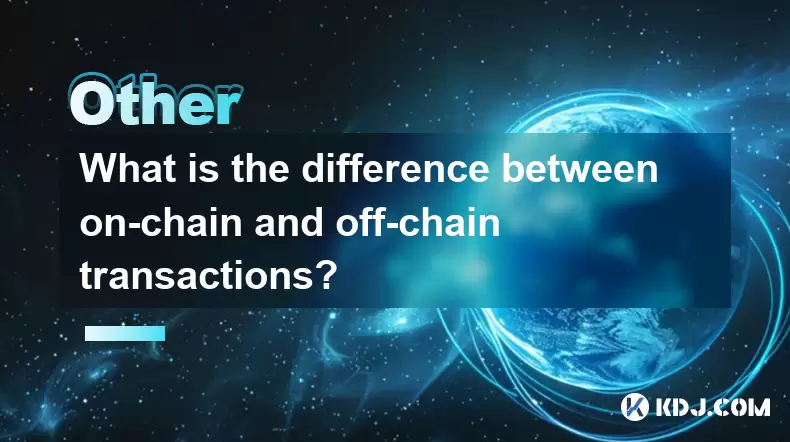
What is the difference between on-chain and off-chain transactions?
Aug 02,2025 at 04:22pm
Understanding On-Chain TransactionsOn-chain transactions refer to digital asset transfers that are recorded directly on a blockchain ledger. These tra...
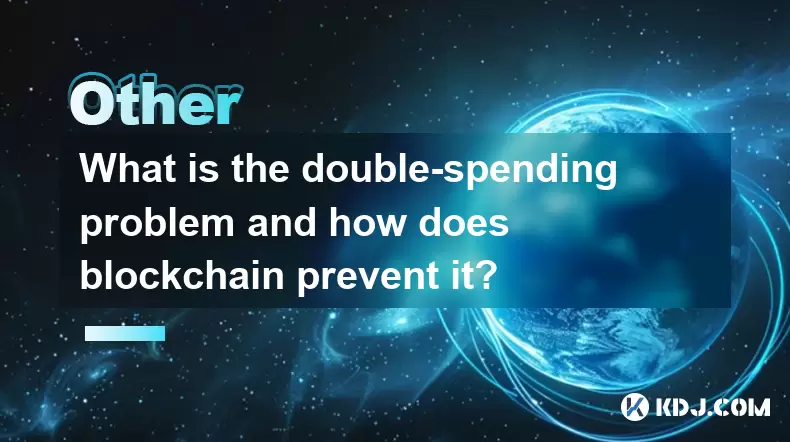
What is the double-spending problem and how does blockchain prevent it?
Aug 02,2025 at 01:07pm
Understanding the Double-Spending ProblemThe double-spending problem is a fundamental challenge in digital currency systems where the same digital tok...
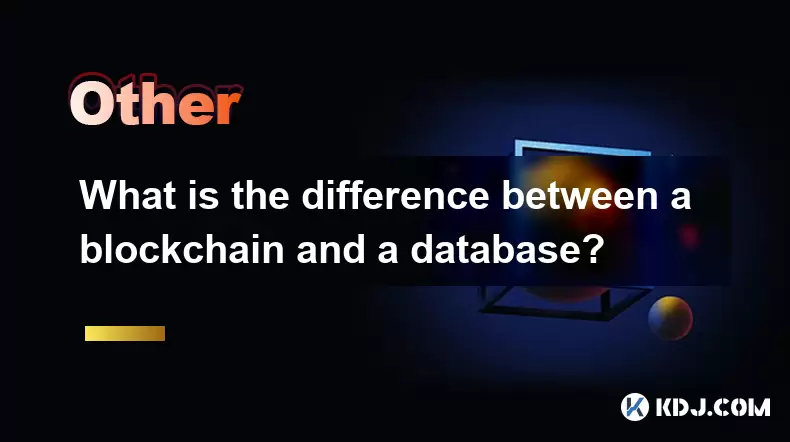
What is the difference between a blockchain and a database?
Aug 01,2025 at 09:36pm
Understanding the Core Structure of a BlockchainA blockchain is a decentralized digital ledger that records data in a series of immutable blocks linke...
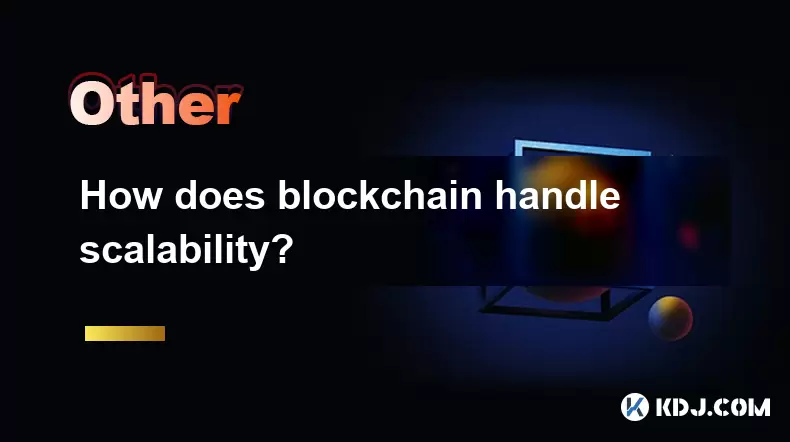
How does blockchain handle scalability?
Aug 02,2025 at 02:58pm
Understanding Blockchain Scalability ChallengesBlockchain scalability refers to a network's ability to handle an increasing volume of transactions wit...
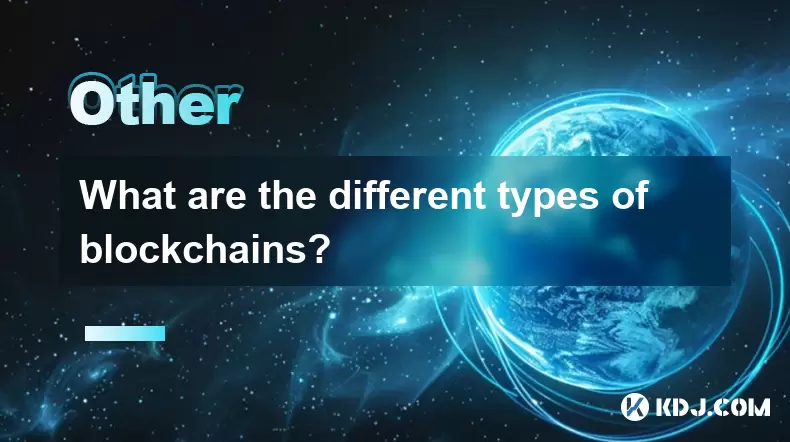
What are the different types of blockchains?
Aug 03,2025 at 03:01am
Public Blockchains: Open and Decentralized NetworksPublic blockchains are the most widely recognized type of blockchain, characterized by their open a...
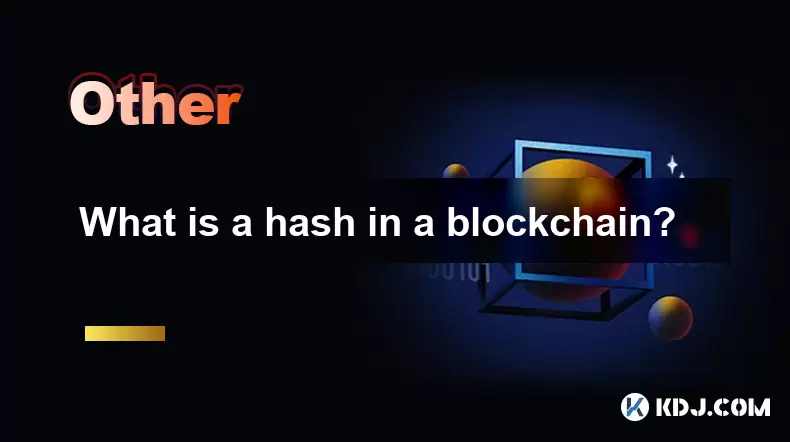
What is a hash in a blockchain?
Aug 02,2025 at 05:28am
Understanding the Concept of Hash in BlockchainA hash in the context of blockchain technology refers to a unique digital fingerprint generated by a cr...

What is the difference between on-chain and off-chain transactions?
Aug 02,2025 at 04:22pm
Understanding On-Chain TransactionsOn-chain transactions refer to digital asset transfers that are recorded directly on a blockchain ledger. These tra...

What is the double-spending problem and how does blockchain prevent it?
Aug 02,2025 at 01:07pm
Understanding the Double-Spending ProblemThe double-spending problem is a fundamental challenge in digital currency systems where the same digital tok...

What is the difference between a blockchain and a database?
Aug 01,2025 at 09:36pm
Understanding the Core Structure of a BlockchainA blockchain is a decentralized digital ledger that records data in a series of immutable blocks linke...

How does blockchain handle scalability?
Aug 02,2025 at 02:58pm
Understanding Blockchain Scalability ChallengesBlockchain scalability refers to a network's ability to handle an increasing volume of transactions wit...

What are the different types of blockchains?
Aug 03,2025 at 03:01am
Public Blockchains: Open and Decentralized NetworksPublic blockchains are the most widely recognized type of blockchain, characterized by their open a...

What is a hash in a blockchain?
Aug 02,2025 at 05:28am
Understanding the Concept of Hash in BlockchainA hash in the context of blockchain technology refers to a unique digital fingerprint generated by a cr...
See all articles

























































































